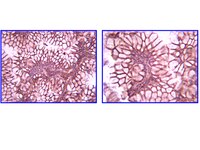ECM103 Sigma-AldrichMillicoat™ Human Laminin Coated Strips (96-Wells)
96-well plate coated with human laminin used for cell adhesion studies.
More>> 96-well plate coated with human laminin used for cell adhesion studies. Less<<Recommended Products
Overview
| Replacement Information |
|---|
Key Specifications Table
| Key Applications | Detection Methods |
|---|---|
| Enzyme Assays | Chromogenic |
| References |
|---|
| Product Information | |
|---|---|
| Detection method | Chromogenic |
| HS Code | 3002 15 90 |
| Quality Level | MQ100 |
| Physicochemical Information |
|---|
| Dimensions |
|---|
| Materials Information |
|---|
| Toxicological Information |
|---|
| Safety Information according to GHS |
|---|
| Safety Information |
|---|
| Packaging Information | |
|---|---|
| Material Size | 1 plate |
| Material Package | 96 wells |
| Transport Information |
|---|
| Supplemental Information |
|---|
| Specifications |
|---|
| Global Trade Item Number | |
|---|---|
| Catalog Number | GTIN |
| ECM103 | 04053252273407 |
Documentation
Millicoat™ Human Laminin Coated Strips (96-Wells) SDS
| Title |
|---|












 receptor α-1 Antibody[225993-ALL].jpg)


